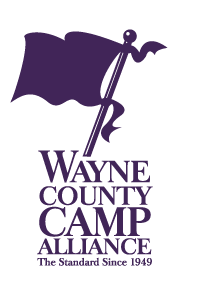The Camp Counselor vs. the Intern
The following article originally appeared in The New York Times on May 29th, 2012 and written by Dan Flesher.
In an act of quiet rebellion, my daughter will spend this summer as a counselor at a sleep-away camp in the Adirondacks. As rebellions go, this one is admittedly very tame. But she is resisting considerable pressure to join the throngs of anxious fellow collegians (she’s finishing her junior year) who will pad their résumés with summer internships in corporations, charities, law firms and other employers that, according to conventional wisdom, offer better preparation for the brutal economy than a summer camp.
She has been attending the same old-fashioned, all-American camp since she was 8 and has been a counselor there for the last three years. For much of the winter and spring, I argued with her and my wife against the camp option, telling them that my daughter needed every conceivable edge to help her survive and thrive in this rough, unforgiving, every-woman-for-herself world.
Like it or not, a summer internship — indeed, more than one — has become de rigueur for a college student. That is a big reason why her camp, like others, has had an increasingly difficult time retaining experienced counselors. Whatever she wants to do upon graduation — right now, the uncomfortably tentative plan is to make documentary films — I insisted that those reviewing my daughter’s work experience will be decidedly unimpressed with “Camp Counselor, 2009-2012.”
Anyone can be a camp counselor, I said, and in this economy, she can’t afford to be just anyone. She needs to show that she is exceptional, to bedazzle potential employers, to brand herself. Just one line on the résumé could spell the difference between joining the millions of college grads lounging on their parents’ couches and a fabulous entry-level gig with Martin Scorsese — or, if she changes vocational directions, another rung on the ladder to success.
I tried to sound sure of myself, even persuaded friends working in various industries to tell her it was true, but my argument was halfhearted. Much of me secretly concurred with the powerful argument my wife made for returning to camp: our daughter would have plenty of time for the so-called real world and we should not begrudge her just one more summer in paradise. “Life is a long preparation for something that never happens,” Yeats warned. He had a point. “The real world sucks,” my wife said, and she had a point, too.
My daughter already came across as an impressive young woman based on her accomplishments, and I had no idea whether one more line on her résumé was likely to make the slightest difference. A recent study by the National Association of Colleges and Employers concluded that “unpaid internships offer no advantage to the job-seeking student,” and that was the only kind of internship her friends had managed to land in previous summer searches. For awhile, though, I forced myself to parrot conventional wisdom because there was at least a chance that it was true.
But the clinching argument came from my daughter’s impassioned defense of camp counselors, and her outrage that someone glancing at résumés would believe that a 20-year-old who fetches coffee at Google is more impressive than one who spends days and nights nurturing, teaching, organizing, comforting and inspiring.
“What I do there matters,” she insisted. In several conversations, she told us about helping a camper cope with her mother’s debilitating depression and comforting others whose parents were fighting or separating, about aiding 11- and 12-year-olds who were coming to terms with their sexuality, battling anorexia, confronting body fear. She talked about the many hours devoted to water-skiing lessons, about instilling the confidence needed by awkward, gawky, painfully self-conscious 8- and 9-year-olds to stay prone in the water, hold on to the rope, then rise up and stay on their feet as the boat pulled away. “What’s more important than that?” she asked.
I had no answer, because I couldn’t come up with anything more important. Nor could I dispute her additional point that the work was incomparable preparation for the future, requiring the skills to manage group projects and motivate individuals, set goals and juggle tight schedules, and stay available for 24 hours a day, six days a week, in sickness and in health.
My wife and I wouldn’t have been able to stop her from returning to camp, but our approval was important to her, so eventually I gave in, with the proviso that she agree to make a documentary film about camping.
That doesn’t mean I am convinced it was the right choice. It is possible to prepare for some challenges of parenthood, to seek guidance from friends and experts when you are not sure about something. But nothing can prepare you for waking up in the middle of the night, terrified that your child is going to be eaten alive by the world, she is too sweet and guileless for what lies beyond the nest of college and camp, you haven’t done enough to toughen her, she’s just not ready.
If I wake up with those fears this summer, I will try to tell myself that in a society where great camp counselors — like great teachers — are absurdly undervalued, her insistence on going back to camp demonstrates a great deal of toughness. And I will try to remember that, at a certain point, there is nothing more my wife and I can do, other than to hope that our daughter can hold on to the rope and stay on her feet as the boat pulls away.
